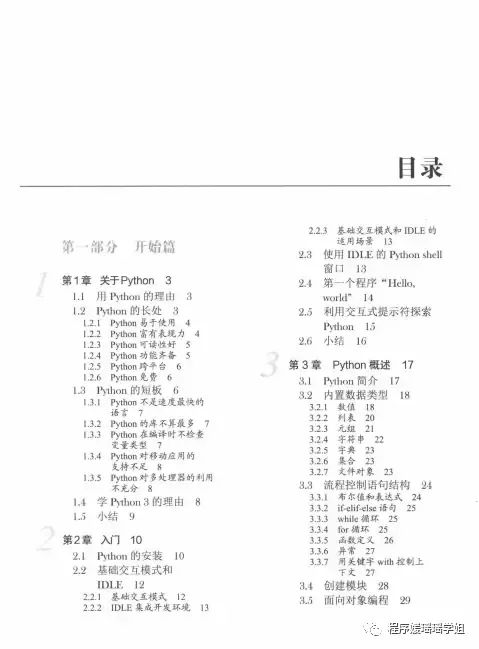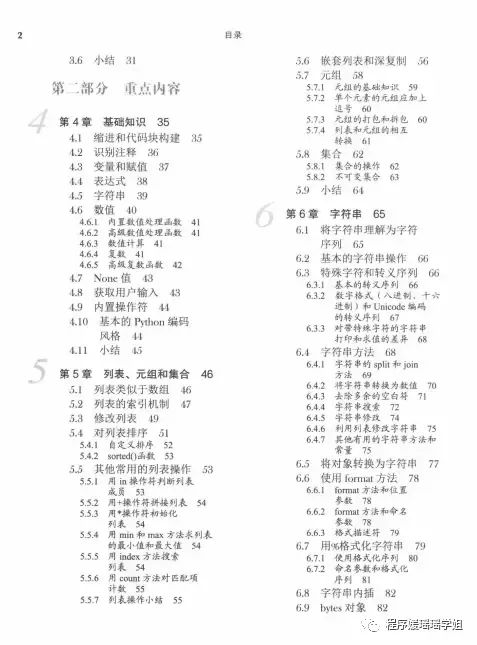Follow 👆 the public account, reply "python" to receive the beginner's tutorial! Source from the internet, will delete if infringed.1. Introduction to Python
1. Why Learn Python?
[Details on how to receive at the end of the article!!]
[Details on how to receive at the end of the article!!]
Before learning Python, don’t worry about having no background or being “slow”. I firmly believe that as long as you want to learn and work hard, you can master it and use Python for many things. In this noisy era, many technologies or concepts continuously emerge, I hope you can calm down to learn, don’t rush for quick results, and take one step at a time. When you master a certain technology, you can still accomplish things, even find a job you like or complete practical projects.
No programming language is the best; there is only the most suitable one. As a beginner, I highly recommend you learn Python. Why? On one hand, it has clear syntax, friendly code, and high readability. At the same time, Python has powerful third-party libraries for web scraping, data analysis, visualization, artificial intelligence, etc.; on the other hand, Python is both an interpreted programming language and an object-oriented language, with high operability and portability, widely used in data mining, information collection, artificial intelligence, cybersecurity, automation testing, and more. In fact, many elementary and high school curriculums and computer level 2 exams have also begun to include Python.
2. Advantages of Python
The greatest advantage of Python is its efficiency. Sometimes, the efficiency of programmers or researchers is more important than that of machines. For many complex functions, using a clearer language can reduce the burden on the program, thereby greatly enhancing the program’s quality. Its ease of learning and scalability also allows beginners to quickly get started. Although Python runs slower than C language at the bottom level, its clear structure frees up programmers’ time and easily integrates with code from other programming languages (like C language).
Thus, no programming language has ever rooted itself in so many fields like Python. Python supports cross-platform operation, is open-source, and has powerful third-party libraries. Especially with the continuous heat of artificial intelligence, Python has ranked first multiple times in the most popular languages released by IEEE in recent years, and more and more programming enthusiasts and tech followers have begun to learn Python.
3. Python Learning Suggestions
During the learning process of Python, don’t feel that your foundation is weak or that you have never been exposed to it before and want to give up; many people choose to withdraw before they even start. I believe that as long as you calm down and work hard, you can master it. During the learning process, you must write code, write code, and write code. Only by truly practicing can you gradually accumulate experience.
At the same time, making mistakes while coding is common. I feel uneasy if I don’t make mistakes in Python code daily, so when encountering errors, learning to use Baidu or Google to solve them is very important; it is also a way to enhance your learning ability. If you really can’t find the error, you can ask questions in open-source forums, communities, or study groups, and feel free to come to my public account or CSDN.
Next, I will provide the Python programmer growth roadmap recommended by the senior teacher Xu Xiangwu, including: Basic Syntax -> Language Sense Training -> Project Practice -> Continue Learning in Specific Directions -> Intermediate Programmer -> Expand Depth and Breadth -> Senior Programmer.
Here, I will share my learning journey and tips for Python. I first came into contact with Python in 2013, mainly because my graduate direction was natural language processing, which required me to scrape data and analyze it using Python. Back then, there were very few resources on Python, and it wasn’t as popular, but I persevered. Specific suggestions are as follows:
First, install the environment and start writing your first Python code; don’t wait until tomorrow.
During the learning process, do not just watch videos (books); while sipping milk tea, it’s a day wasted. You must practice coding!
Usually, first understand the basic syntax of Python. I recommend the videos of Teacher Song Tian from MOOC and the syntax from runoob. Of course, there are many free resources on Bilibili and CSDN that you can choose from.
After roughly mastering the basic syntax, you can try learning Python web scraping, as it is involved in data analysis, machine learning, penetration testing, etc. Only by having your own corpus can you handle more issues. You don’t need to go too deep into scraping; mastering two techniques is sufficient.
Urllib, Requests, BeautifulSoup, XPath, Selenium, Scrapy, Distributed Scraping
Next, learn Python visualization analysis (word clouds), WeChat operations, email sending, etc. These skills can effectively enhance your programming interest.
Artificial Intelligence Direction: Includes machine learning (Regression | Clustering | Classification), deep learning (TensorFlow | Keras | Pytorch) learning, recommended to combine with actual research or projects for in-depth study.
Image Recognition Direction: Includes image processing, OpenCV, pattern recognition, machine learning, deep learning, and object detection learning, also recommended to combine with actual research or projects for in-depth study.
Other Learning Directions: Web Development, Cybersecurity, Automation Testing, Application Programming.
There are no shortcuts on the learning path, only persistence. However, you can continuously enhance your learning interest through Python and do things you enjoy, falling in love with this language. Finally, here is a quote that motivated me when I was learning Python in my junior year:
If not now, when? If not me, who?
If not for myself, then for whom; if not starting now, when will I begin?
About Python Technical Reserve
Learning Python well is beneficial for both employment and making extra money, but to learn Python, you still need a learning plan. Finally, I will share a complete set of Python learning materials for those who want to learn Python!


Friends, if you need the complete Python learning materials
How to get:
-
Like + See Again
-
Reply “python” in the public account
Get the latest 2024 Python beginner’s learning materials,Reply in the backend:Python